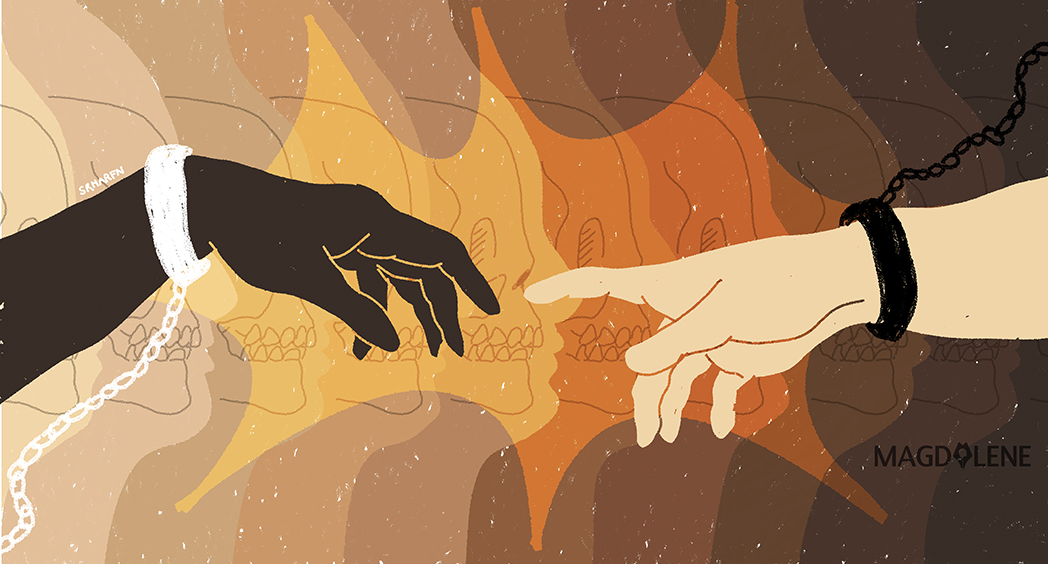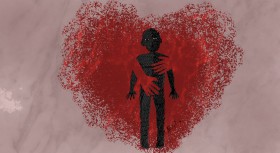A few weeks ago, as my fellow peers and activists who were rallying in front of Parliament’s complex were scrambling to save themselves from rogue water-cannon and tear-gas attack from the cops for protesting a series of archaic and oppressive bills, many international news outlets came up with its own interpretation of the event.
No less than the BBC, CNN, Bloomberg, and Al-Jazeera reported the very occasion as simply a protest against non-marital-sex laws that could make western tourists get arrested while vacationing in Indonesia, without giving the spotlight to the in-depth elaboration about the seven-point student demands that were brought into the march.
It barely touched the more crucial parts of the bill to revise the criminal law that they were referring to, including possible imprisonment of the homeless; or criminalization of abortion—giving no exemption to women with medical emergency and rape victims; or penalization of farmers for neglecting their chicken and ducks. All of these would have a severe implication on everyday Indonesian’s lives had the bill been passed. Instead, it angled on the possible discomfort foreigners might suffer when they are visiting the country.
This wasn’t the first time Western media took our pain and turned it into a white-centric narrative. In the months following the Hong Kong riots, western media often highlighted the Caucasian, western tourists stranded and inconvenienced at the airport, rather than centering the story on the student protesters. News about an American missionary slash fraud doctor murdering children in Uganda was centered around her story, rather than the sufferings she had caused to her victims.
The endless examples show that at the end of the day our pain is worthless, unless they put a Western lens on it, unless they place the Caucasian world at the center of our narrative.
Also read: Why You Need to Educate Yourself about White Privilege
Western media could argue that they were merely serving their targeted readers, because it creates a relatable content and depicts a more grounded picture of the sufferings experienced by the people in the Southern Hemisphere. But even without the white-centric narratives, the stories that they depict are universally classified as suffering. They are stories about oppressive governments, arbitrary detentions, extrajudicial murder, police brutality, and effects on poverty and unchecked leaderships. They are stories that objectively can stand on their own.
This erasure of our pain inherently sends a cold message to both Western media readers and their supposed central object for their publication: that the pain and struggle of people of color do not matter enough to warrant utmost, unquestionable empathy. That our pain is worthless standing on its own. That, until we involve Caucasian and Westerners. in our narrative, our struggles aren’t worth even mentioning, much less make the headlines.
The fact that Western media feel the need to shift the focus of their news reports for their Caucasian, Western-centric reader shows not only how far-fetched it is for their readers to even try to get out of their bubbles and start empathizing with other people’s struggles, but also how careless the media are in their reporting, and how easy it was for them to simplify and distort important information that they publish.
Al-Jazeera might later correct its tweet about the cause of the protest, but the outrage from Indonesian students regarding its initial headline was not enough to warrant a title replacement and a more in-depth focus on our fight. And this move was mirrored by other Western media. They preferred to publish a white-centric narrative and only later correct it when they were called out, rather than conducting an in-depth research centering on the actual issues faced by the actual people affected by it.
Also read: Indonesian Media's Failure to Protect Women
These careless and blatantly ignorant reporting harms more when we remember that it is these outlets that the outside world would rely on to get their news. It is from these outlets – instead of national news outlets – that international societies could assess the situation and contribute their help.
Misleading news reports go far, reaching the crevices of international audiences that local papers and websites couldn’t even touch. Spreading a misleading narrative could cheapen and delegitimize our struggles to the international eyes, because after all, why would general readers give a damn about a bunch of students protesting over nonmarital sex laws? Westerners could always find a new vacation spots.
That kind of report could turn deadly for grassroots movements that fight for freedom and democracy. The media, in their careless publishing, had directly harmed the causes that we are fighting for because they were too busy trying to find the white, western aspect in a clearly non-western narrative.
So international media—here is what I ask of you: stop giving the spotlight to idle Aussie tourists, who would leave my country in a heartbeat when things go south anyway. Stop giving the headlines to Caucasian people in Indonesia who are temporarily bothered by the riots and could very easily seek shelter in their embassies. Shift your narrative to the real pain struggled by the people about whom your report focuses on: our struggles, our fight. Because if you cannot see the universality in that, perhaps you aren’t quite the responsible media you think you are.
Ilustrasi oleh Sarah Arifin







Comments